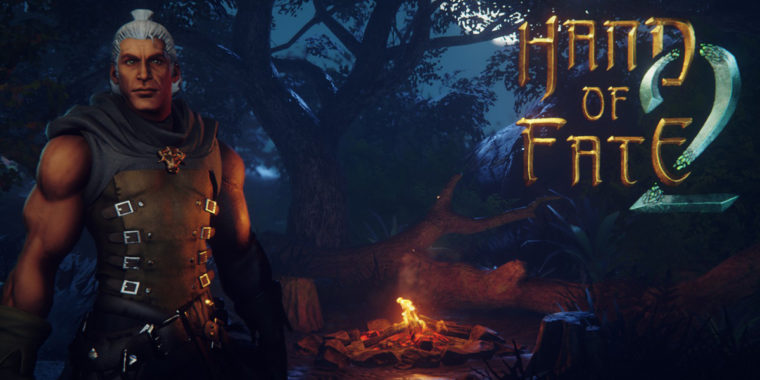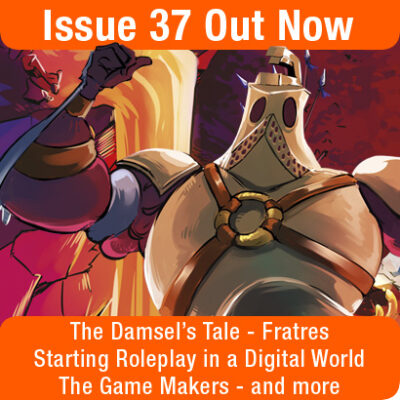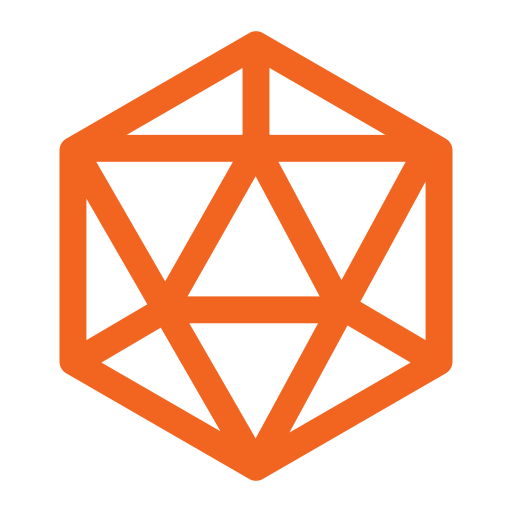The game of life and death is back, but under the control of a new Dealer. Evil must again be overcome, and a new deck built to propel the hero’s quest forward. Can you master the deck, beat the game and complete your mission? Or will you fall before the hand of fate?
Hand of Fate 2 is an action roleplay game which contains many tabletop-like deck building and card management systems. Players are put in control of a hero, who they send on quests to unlock better equipment and card options. This is a direct sequel to Hand of Fate, with both being developed and published by Defiant Development. The tabletop game Hand of Fate: Ordeals by Rule & Make is a prequel of sorts to Hand of Fate 2.
The game is broken up into several sections. Players choose their quests from a map, with new quests progressively unlocking as the player completes existing ones. Once a quest is chosen the player builds their deck. These will be the events and locations which the hero will encounter during this quest, as well as any items they may carry, and who their companion is. With this done it is over to the Dealer, who lays out the play area and the game beings in earnest.
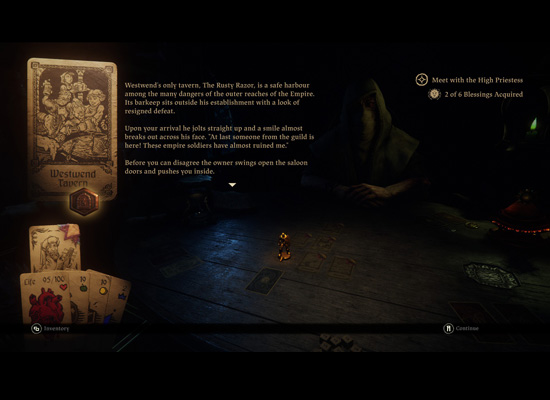
Game play itself is divided between decision making on the tabletop and real time action sequences. Cards are laid out in different formations, and the player moves the hero along them, consuming food along the way. As new cards are moved onto they are flipped over, and the event is resolved. These can be as wide a variety as visiting an inn, helping distressed farmers, or battling roving bandits.
Some cards resolve with a simple choice. Most though require additional challenges. These can include rolling dice to exceed a target total, hitting a point on a swinging pendulum or choosing the right card from a shuffled hand. Cards which reveal conflict will lead into a real time battle, where the player controls the hero in melee combat against their foes.
As card events are completed, successfully or unsuccessfully, the cards become inactive and cannot be replayed that adventure. The player continues to explore until they either resolve the quest conditions, or find a card which moves them to the next level of the quest. Fulfilling certain conditions on cards will yield tokens which unlock new event, item and companion cards.
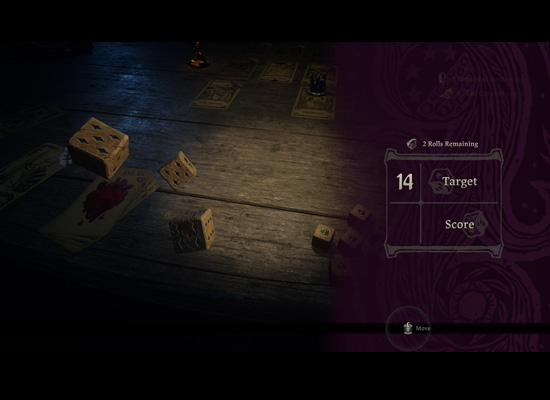
Behind all this sits a hero management system, connected to life, food, gold and fame, which the player must plan their heroes questing around. Moving onto unrevealed cards consumes food, and if no food is available, life. Food can also be cooked, by setting up camp, to replenish life. If the hero’s life ever reaches zero, they die and the quest is over.
Gold is used to purchase items and food, and is also used as a way to resolve some event cards. Fame is used in a number of ways, from being required to complete quests to giving the player access to mighty items.
Tabletop players are going to find a lot to interest them, especially those who enjoy deck building and roleplay. There are a large number of character customisation options, both cosmetic and functional, so players will be able to build the kind of hero which suits them. Nothing is ever locked in, though, so there is a lot of scope to experiment with different looks and item combinations.
So too the deck building will present both a fun and challenging experience. Cards of various effect and difficulty are gradually added to the available deck to draw from, which gives the player a chance to try them out and find those which complement their play style. And with the inclusion of other tabletop staples like dice and hand shuffles, most tabletop players are going to feel comfortable in what the game wants them to do most of the time.
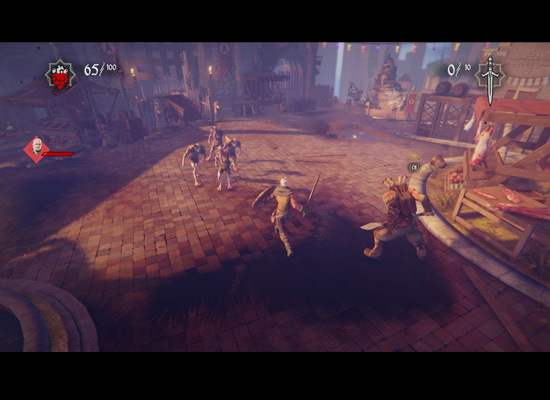
The underlying management system is also quite robust, with plenty of opportunity to either meticulously plan ahead or push the resources to the limit. Having to balance the slow consumption of food and the hero’s level of life compliments the quicker event challenges. While the gold and fame aspect informs what cards and items you are seeding the decks with.
Where tabletop players may find some difficulty is in the real time combat. A certain level of quick thinking and control dexterity is needed in these sections, which some who don’t play a lot of the more involved digital games may find unfamiliar. The combat does have a tactical aspect to it, with a noticeable ebb and flow to how the participants attack and defend. Which may bridge the gap for some players.
Hand of Fate 2 is a fun and engaging game which brings many mechanics tabletop gamers are familiar with to a digital experience. There is a lot here for fans of tabletop to enjoy, though the real time combat is a hurdle which must be passed by even the most digital inexperienced player.
You can find Hand of Fate 2 on PC through Steam, Xbox One and PS4. It is developed and published by Defiant Development.


